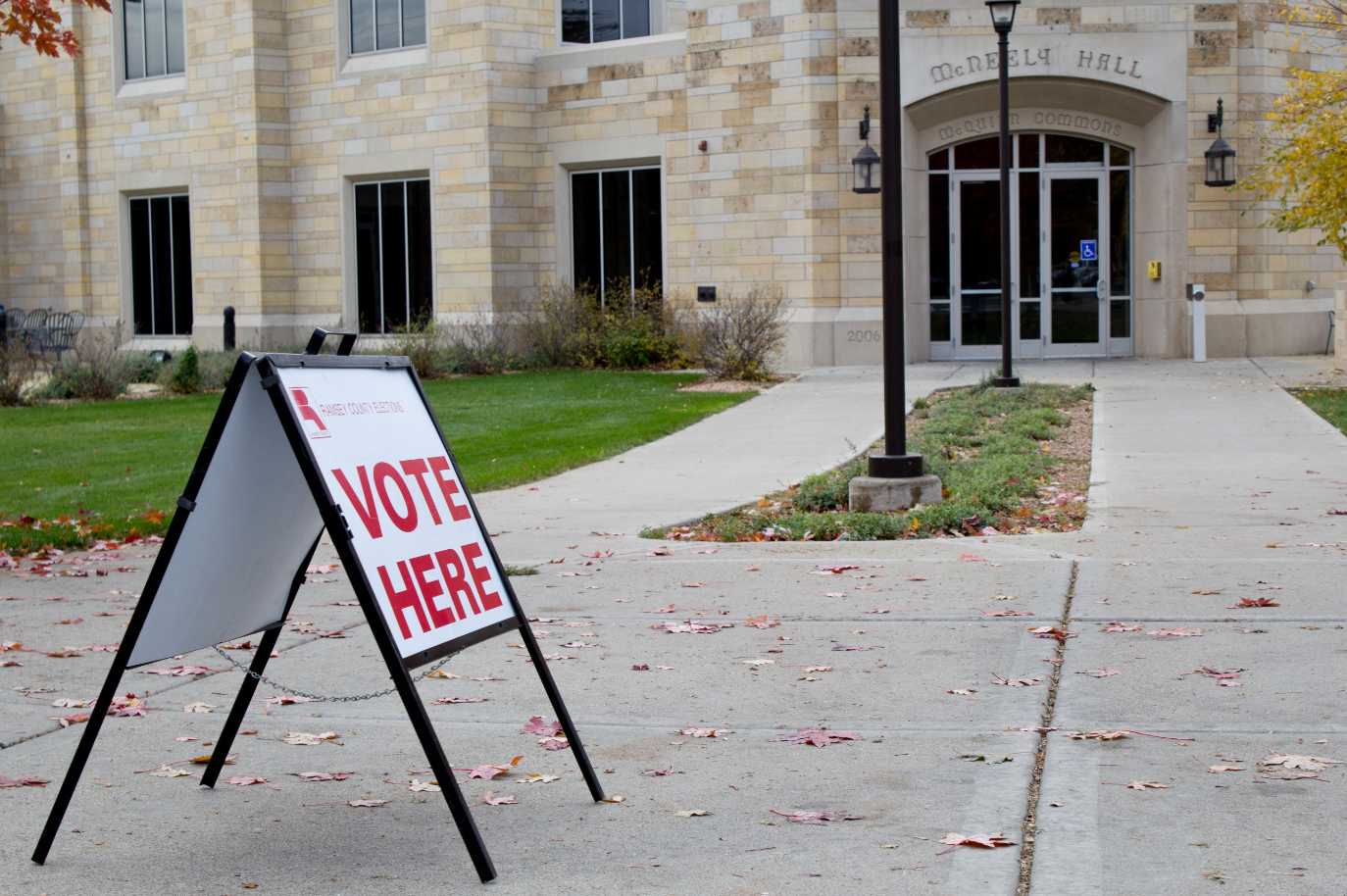
Chris Coleman was re-elected mayor of St. Paul Tuesday night in the 2013 elections; however, St. Thomas students did not turn out in large numbers to cast their votes at the on-campus precinct.
According to Mitch Helle-Morrissey, the head elections judge for the on-campus precinct, around 20 students voted in this year’s St. Paul mayoral elections at the W-4 P-06 precinct in McNeely Hall.
Helle-Morrissey said the participation was not much better among adult residents.
“The turnout has not been great in the precinct this time around,” Helle-Morrissey said. “I think we have 2,142 registered voters, and we’ve had a total of 179 . College students— maybe 20 of those— so turnout, I would say, is poor.”
These numbers were reported at around 7:30 p.m— 30 minutes before the polls closed.
Senior Matt Baloun said he didn’t vote but was surprised that only about 20 St. Thomas students exercised their rights at the on-campus precinct.
“I thought there would be more because of how big our political group (College Republicans, College Democrats) is here,” Baloun said. “From what I know, there are a lot of people on campus that care about (politics).”
Junior Maggie Malone-Povolny was one of the few students who voted in the election.
“I was raised to believe that voting is important, especially as a citizen of the United States,” Malone-Povolny said.
Sophomore Kristine Lindeman also said she did not vote in this election simply because she was unaware.
“I really didn’t know about anything regarding the voting or what it was for. It was an issue of not being informed,” Lindeman said. “The only reason I knew there was voting (today) was because the main parking lot I parked in was blocked off for voting.”
Sophomore Jake Held said he didn’t vote because he doesn’t care much about the mayoral position.
“I knew about it, but I didn’t pay attention to the candidates,” Held said. “I don’t see how a mayor could affect me in the future. Also, I do not see a mayor as a very important position in the government.”
Helle-Morrissey said the turnout might have been poor because most students at St. Thomas are not directly from this area. Also, he said mayoral elections are not competitive.
“I think it’s temporary housing for a lot of college students, and I think the local races are not as highly contested,” Helle-Morrissey said.
Junior Garret Smetana was another one of the 20 who voted. He said he was disappointed in the turnout.
“I think the lack of people who showed up demonstrates a lack of compassion for what our founding fathers fought for many years ago,” Smetana said.
Minneapolis City Council member Betsy Hodges was voters’ runaway first choice to be her city’s next mayor.
Hodges was the top choice on 36 percent of ballots cast in Tuesday’s election, well ahead of former Hennepin County commissioner Mark Andrew’s nearly 25 percent. The city’s ranked choice voting requires election officials to eliminate losing candidates and redistribute second- and third-place choices in a system that ends when one candidate has more than 50 percent of the vote — a process not expected to be complete until Wednesday at the earliest.
Kayla Bengtson can be reached at beng2004@stthomas.edu.


